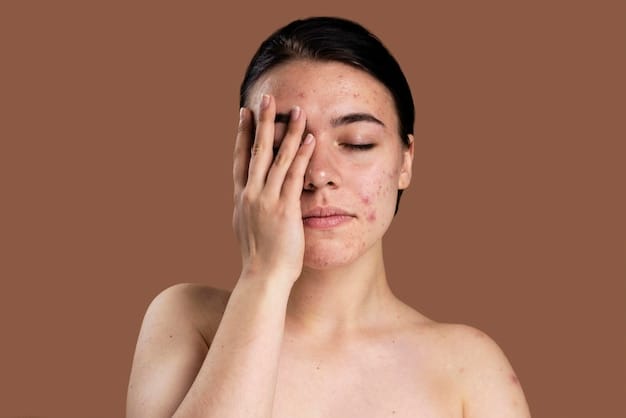
If you’re dealing with persistent acne that just won’t clear up, it might not be the usual kind of acne; it could be fungal acne. This type of acne needs special attention and care, which is where anti-fungal acne products come in handy.
So, what exactly is fungal acne? It’s not your typical acne. Fungal acne is caused by yeast, a type of fungus that inflames the hair follicles on your skin, leading to itchy, uniform pimples. It’s often misdiagnosed as regular acne because they look so similar.
The good news is that once you identify fungal acne correctly, you can effectively manage it with the right products. Whether you’re just curious or seriously looking for a solution, this guide will provide you with valuable tips and product recommendations for treating fungal acne.
1. Topical Antifungals
Topical antifungals, like creams and gels applied directly to the skin, are usually the first line of defense against fungal acne. Key ingredients to look for are ketoconazole and clotrimazole, both of which are effective at reducing yeast growth. Terbinafine is another ingredient known for treating fungal infections of the skin and nails, and it also works well against fungal acne. These treatments are easy to use—simply apply them to the affected areas as directed, usually once or twice a day.
2. Anti-Fungal Shampoos
You might not think of using shampoo for acne, but anti-fungal shampoos can be very effective, especially for fungal acne on the scalp or forehead. Ingredients to look for include ketoconazole, selenium sulfide, and ciclopirox olamine. These shampoos can be used a few times a week, depending on the severity of your condition, and can help control and reduce fungal acne.
3. Oral Antifungals
In more severe cases, topical treatments might not be enough, and that’s where oral antifungals come in. Medications like fluconazole and itraconazole are taken in pill form and work from the inside out to tackle persistent fungal infections. Another option is griseofulvin, usually reserved for tough cases that don’t respond to other treatments. Always take these medications under the supervision of a healthcare professional.
4. Natural and Alternative Remedies
If you prefer natural treatments, consider options like tea tree oil and apple cider vinegar, known for their antifungal properties. These can be found in various skincare products and are suitable for sensitive skin. While natural remedies can be effective, they work best when used alongside other treatments, especially for more serious cases.
5. Medicated Cleansers
Using medicated cleansers with antifungal agents like pyrithione zinc can help manage fungal acne daily. Some cleansers also contain salicylic acid, which helps clear blocked pores. These cleansers are gentle enough for daily use and can be a valuable addition to your skincare routine.
6. Anti-Fungal Powders and Sprays
Anti-fungal powders and sprays are great for areas prone to sweating and moisture, like the back, chest, and underarms. They’re easy to apply and can help keep these areas dry, reducing the chances of fungal growth. These products are particularly useful for active individuals or those in hot and humid climates.
In conclusion, there are various anti-fungal acne products available to help clear up your skin. From topical creams and medicated shampoos to natural remedies and oral medications, there’s something for everyone. The key to success is not just choosing the right product but also using it consistently and understanding how it works best for your skin. With regular use, these anti-fungal acne products can effectively manage your condition and prevent future outbreaks.